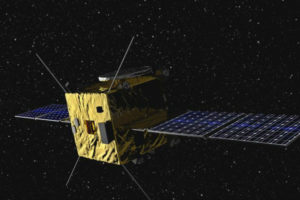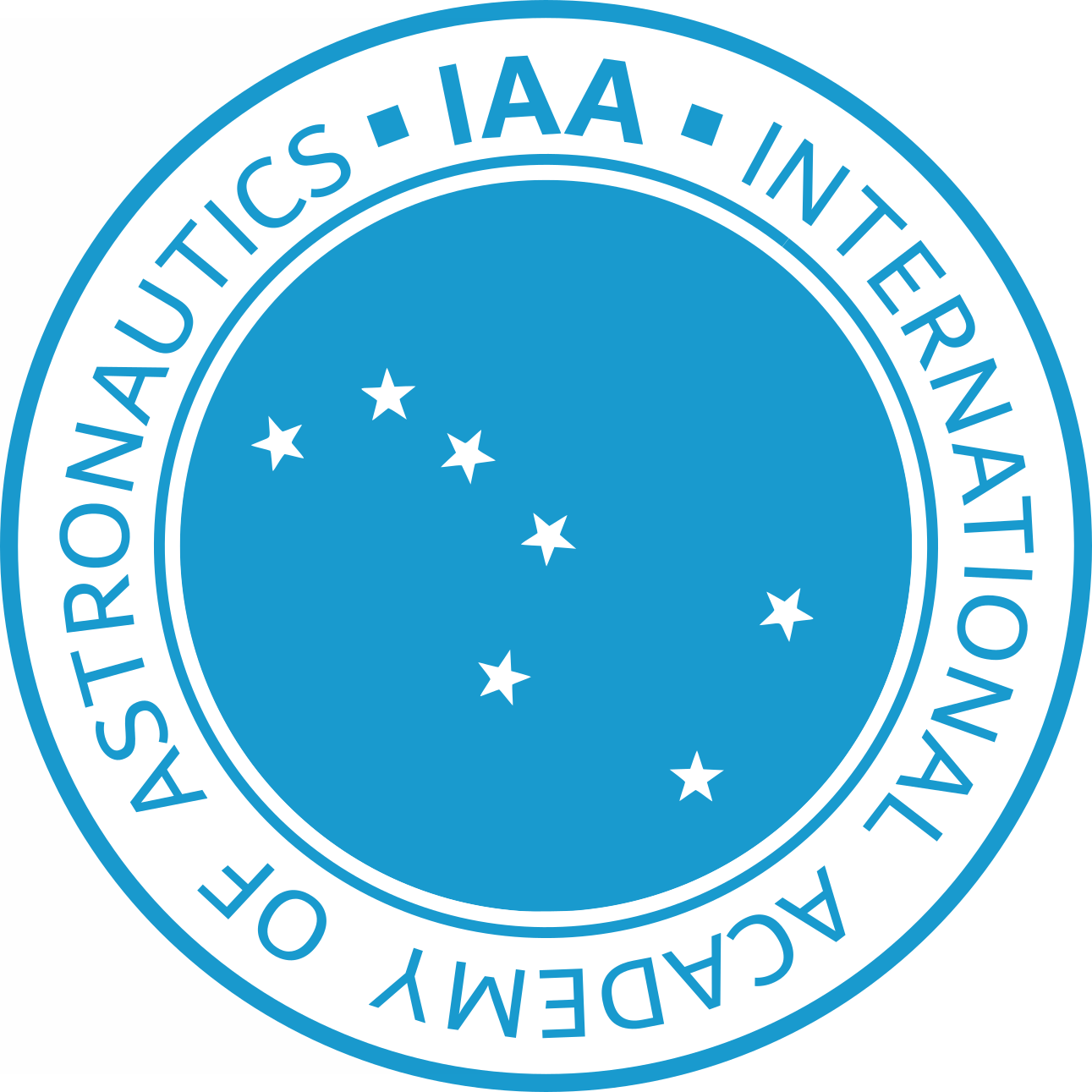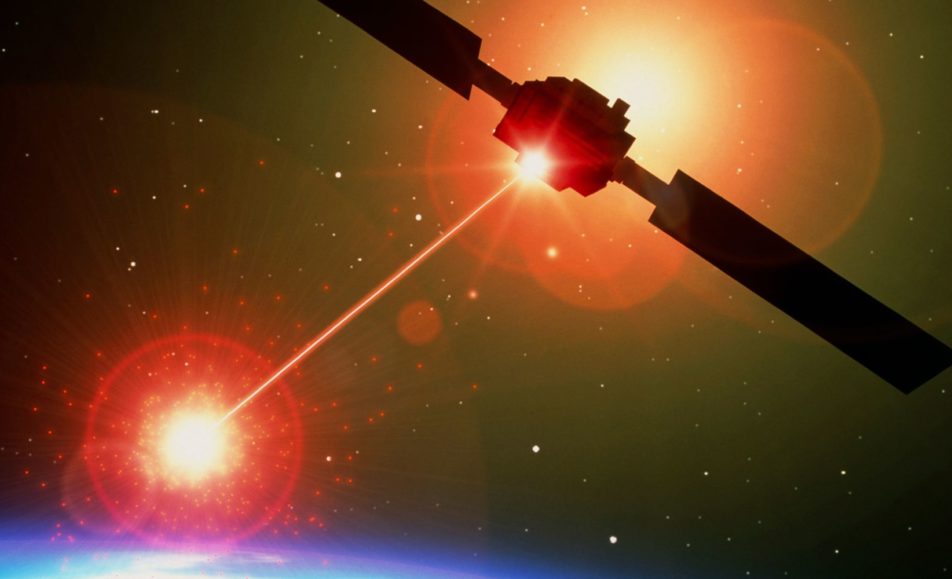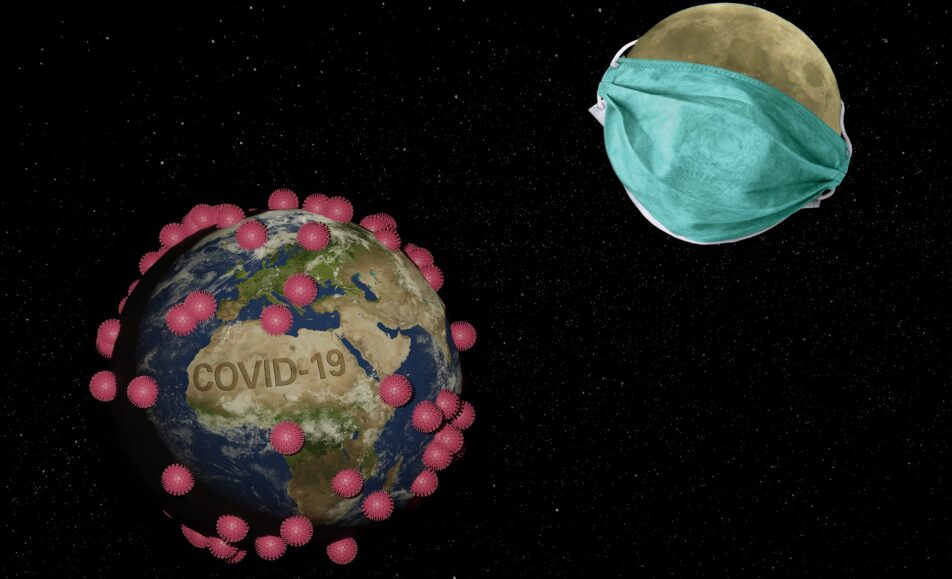Registration link is available here:
https://www.dlr.de/SSEO14
Call for Papers (pdf print version)
The great number of scientists, engineers, and managers, who participated in the hitherto existing symposia reflects the high interest in the use of small satellites for dedicated missions applied to observation of the Earth System, from technology demonstration to scientific observation or exploration missions.
These types of missions can be conducted relatively quickly and inexpensively and provide increased opportunity for access to space.
The spacecraft bus and instruments can be based either on optimized off-the-shelf systems, with little or no requirements for new technology, or on new high-technology systems. Thus a new class of advanced small satellites, including autonomously operating satellites or constellations/formations may be created, opening new fields of application for scientific purposes as well as operational, public and commercial ser-vices.
The symposium will provide a forum for scientists, engineers, and managers to exchange information about planned and on-going programs and missions, and present new ideas, covering small satellite mission objectives as well as technology and management aspects for dedicated satellites for Earth and Moon observation.

Areas of interest include, but are not limited to:
Small Satellite Mission and University Programs
– International and national programs
– Planned and on-going programs
– Integrated applications
Objectives for Small Satellite Missions
– Scientific Earth and Moon observation missions
– Systems for disaster and climate monitoring
– Technology demonstration missions
– Commercial services and applications
– Results and lessons learned
System Aspects
– Sensors and instrumentation
– Spacecraft concepts and sub-systems
– Software and IT safety
– Ground stations and communication
– Mission operation and facilities
Mission Architectures
– Distributed Space Systems
– Constellation and formation
– Rendezvous and docking
– Launch systems
Space Situational Awareness
– Space Weather
– Near-Earth objects
– Space surveillance and tracking
Student Prize Paper Competition
Students who want to submit their abstract for the Stu-dents Conference need to prepare an extended abstract (4 pages)
The symposium will consist of
– Lectures by invited speakers
– Contributed papers selected from abstracts received in response to the call for papers
– Poster sessions
– Panel discussions
and will include a technical exhibition to showcase hardware and posters.
The official language will be English.
SCHEDULE
| May 30, 2022 | Call for Papers |
| November 28, 2022 | Abstracts due |
| January 16, 2023 | Notification to Authors |
| January 26, 2023 | Final Announcement |
| March 03, 2023 | Extended Abstract due (4 pages) |
| May 07, 2023 | Final paper due (max. 8 pages) |
| May 07-12, 2023 | 14th Symposium |
| September 2023 | Proceedings |
Under construction
SCIENTIFIC PROGRAM COMMITTEE
HONORARY CHAIR
Rainer Sandau, IAA Technical Director Satellites and Space Applications (France)
CHAIRMEN
Enrico Stoll, Chairholder of Space Technology Technical University of Berlin (Germany)
Eberhard Gill, Director TU Delft Space Institute, Delft University of Technology (The Netherlands)
Matthias Hetscher, Administrative Head Institute of Solar-Terrestrial Physics, German Aerospace Center (Germany)
MEMBERS
J.-N. Bricout (CNES, France)
J.-M. Contant (IAA, France)
C. Elachi (NASA/JPL, USA)
L. Gratton (UNSAM, Argentina)
S. Hardhienata (LAPAN, Indonesia)
W. Halle (DLR, Germany)
P. Lier (CNES, France)
Y.-A. Liou (CSRSR, Taiwan)
L. Maresi (ESA/ESTEC)
S. Mostert (SCSH, South Africa)
S. Nakasuka (Univ. of Tokyo, Japan)
R. Navalgund (ISRO, India)
S. Neeck (NASA/HQ, USA)
F. Ongaro (ESA/ESTEC)
M. Ovchinnikov (KIAM, Russia)
P. Patterson (USU/SDL, USA)
L. Paxton (JHU/APL, USA)
M. Saandar (MSPRS, Mongolia)
Sir Martin Sweeting (SSTL, UK)
C. F. Varotto (CONAE, Argentina)
Y. Zhu (CAST, Beijing, China)
LOCAL ORGANIZING COMMITTEE
Coordination:
Symposium and Program
M. Hetscher
DLR, Germany
+49 30 67055646
iaa.symp@iaamail.org
Local Agency Exhibition
Antje Scherdin Berlin Partner
DLR,
Phone +49 3981480127
SSEO14@dlr.de
All media needs to be accredited to access the venue. A link to media accreditations will be provided.
Find the leaflet including topic areas for papers...
Leaflet
Call for Papers leaflet is now available (pdf print version).
Areas of interest include, but are not limited to:
Small Satellite Mission and University Programs
– International and national programs
– Planned and on-going programs
– Integrated applications
Objectives for Small Satellite Missions
– Scientific Earth and Moon observation missions
– Systems for disaster and climate monitoring
– Technology demonstration missions
– Commercial services and applications
– Results and lessons learned
System Aspects
– Sensors and instrumentation
– Spacecraft concepts and sub-systems
– Software and IT safety
– Ground stations and communication
– Mission operation and facilities
Mission Architectures
– Distributed Space Systems
– Constellation and formation
– Rendezvous and docking
– Launch systems
Space Situational Awareness
– Space Weather
– Near-Earth objects
– Space surveillance and tracking
Student Prize Paper Competition*)
The symposium will consist of
– Lectures by invited speakers
– Contributed papers selected from abstracts received in response to the call for papers
– Poster sessions
– Panel discussions
and will include a technical exhibition to showcase hardware and posters.
The official language will be English.
*) Please note: Students, who want to submit their abstract for the Students Conference need to prepare an extended abstract (4 pages)
Find the submission process including templates and info regarding the student competition...
Abstract Submittal
You are invited to contribute a paper for presentation at the symposium. A one-page, single-spaced abstract of no less than 300 and no more than 500 words*) must be received by
November 28th, 2022.
Abstracts should be in English and shall include the symposium topic addressed, the problem explored, the methodology used, results and conclusions so as to allow the Scientific Program Committee to make an informed decision regarding their suitability for inclusion into the symposium.
Notification of your paper’s acceptance and author’s instructions will be sent by January 16th 2023.
The symposium digest comprising the extended abstracts (four pages) will be part of the registration package handed over when registering on-site.
Final papers for the symposium proceedings are limited to eight pages, including tables and illustrations. The symposium proceedings will provide the contributed papers and interactive poster session papers presented during the symposium. They will be available for the participants after the conference.
Outstanding presentations of papers and posters will be awarded.
Please upload your abstract at https://web.tresorit.com/r#BvNrFriDAx7WjIrp6sqQ3g or you may send it by e-mail to: iaa.symp@iaamail.org
2019 Conference Proceedings are available here
Conference Proceedings (pdf file 33 MB, 658 pages)
Proceedings of the 12th Symposium on Small Satellites for Earth Observation, IAA Book Series-Volume 2 Number 11
The 12th IAA Symposium on Small Satellites for Earth Observation was initiated by the International Academy of Astronautics (IAA) and is hosted by the German Aerospace Center (DLR) and Technische Universität Berlin (TU Berlin).
This volume contains the proceedings of the contributions to the technical sessions, the poster session, and a special student paper session. The papers cover a wide range of different areas like small satellite mission programs, objectives for small satellite missions, mature (off-the-shelf) systems, advanced technology approaches, low-cost management aspects, and results of small satellite missions and lessons learned. They reflect the growing interest in the use of small satellites for dedicated missions applied to Earth observation, from scientific Earth observation missions to technology demonstration missions. It will become obvious that this type of mission can be conducted relatively quickly and inexpensively and provide increased opportunity for access to space. The spacecraft bus and the instruments can be based either on optimized off-the-shelf systems, with little or no requirements for new technology, or on new high technology systems.
Information on online registration
Registration
Dear participant,
due to the price increases of the past year we are forced to raise our conference fees moderately in order to be able to offer you the usual high quality of our symposium.
To partially offset the cost of the Symposium, there will be a registration fee in the order of € 650 for participants registering by January 31st, 2023.
After that date, the registration fee will raise to € 750.
The registration fee for students amounts to € 190.
The fee will cover admission to the sessions, the symposium digest, the proceedings published after the symposium, the symposium reception, coffee breaks and lunch.
Registration link is available here:
https://www.dlr.de/SSEO14
Information to apply for sponsorship...
Sponsorship Information
under construction
Student & young scientist competition
Student Prize Paper Competition*)
In order to participate, please submit an extended abstract/ short paper (4 pages) of your research project.
Please find the abstract template here below:
https://iaaspace.org/wp-content/uploads/iaa/Scientific%20Activity/conf/sseo2023/berlin2023abstract.doc
*) Please note: Students, who want to submit their abstract for the Students Conference need to prepare an extended abstract (4 pages)
List of past conferences...
Past Conferences
1996 Berlin, Germany 1st IAA Symposium on Small Satellites for Earth Observation, November 1996.
1999 Berlin, Germany 2nd IAA Symposium on Small Satellites for Earth Observation, April 1999.
2001 Berlin, Germany 3rd IAA Symposium on Small Satellites for Earth Observation, April 2-6, 2001.
2003 Berlin, Germany 4th IAA Symposium on Small Satellites for Earth Observation, April 7-11, 2003.
2005 Berlin, Germany 5th IAA Symposium on Small Satellites for Earth Observation, April 4-8, 2005.
2007 Berlin, Germany 6th IAA Symposium on Small Satellites for Earth Observation, April 20-26, 2007.
2009 Berlin, Germany 7th IAA Symposium on Small Satellites for Earth Observation, May 4-8, 2009.
2011 Berlin, Germany 8th IAA Symposium on Small Satellites for Earth Observation, April 4-8, 2011.
2013 Berlin, Germany 9th IAA Symposium on Small Satellites for Earth Observation, April 8-12, 2013.
2015 Berlin, Germany 10th IAA Symposium on Small Satellites for Earth Observation, April 20-24, 2015.
2017 Berlin, Germany 11th IAA Symposium on Small Satellites for Earth Observation, April 24-28, 2017.
2019 Berlin, Germany 12th IAA Symposium on Small Satellites for Earth Observation, May 06-10, 2019.
under construction
under construction
under construction
under construction
12th IAA SSEO Berlin, Germany
The International Academy of Astronautics held the 12th IAA Symposium on Small Satellites for Earth Observation in Berlin, Germany on 06-10 May, 2019.
13th IAA SSEO Berlin, Germany
The International Academy of Astronautics held the 13th IAA Symposium on Small Satellites for Earth Observation in Berlin, Germany on 27-29 April, 2021.
Program is available (pdf print version)
Given the international pandemic situation, we have decided to replace the physical get-together for the IAA Symposium on Small Satellites for Earth system observation by a virtual edition. This is with great regret, since our Symposium had been a place to meet for more than 20 years.
However, activities in the Earth observation sector continue. Latest developments and future trends still need to be shared amongst our community. We therefore call for contributions to the virtual edition of our symposium with a focus on flight experience, new technologies and young scientists.
Contributions from 4S
Our highly regarded partner symposium 4S had to be cancelled and authors of submitted abstracts have been informed. We therefore want to encourage all 4S presenters to resubmit their abstracts for the virtual edition of our conference in order to get their valuable content presented online and published.
The great number of scientists, engineers, and managers who participated in the hitherto existing symposia reflects the high interest in the use of small satellites for dedicated missions applied to earth observation, from scientific earth observation missions to technology demonstration missions.
These types of missions can be conducted relatively quickly and inexpensively and provide increased opportunity for access to space
The spacecraft bus and instruments can be based either on optimized off-the-shelf systems, with little or no requirements for new technology, or on new high-technology systems. Thus a new class of advanced small satellites, including autonomously operating “intelligent” satellites may be created, opening new fields of application for scientific purposes as well as operational, public and commercial services.
The symposium will provide a forum for scientists, engineers and managers to exchange information about planned and on-going programs and missions, and present new ideas, covering small satellite mission objectives as well as technology and management aspects for dedicated earth observation satellites.
Day 1: Tuesday, April 27th, 2021
Opening & Welcome Ceremony
Keynote: Sir Martin Sweeting (SSTL),
40-year anniversary of UoSAT-1
Session 1:
Xie Chengyin et al. (Spacety),
China’s first small commercial SAR satellite-“Hisea-1” satellite and Typical applications
Josef Mittermayer et al. (German Aerospace Center),
A Novel MirrorSAR Concept for Augmenting the Next German Synthetic Aperture Radar Mission HRWS with Single-Pass Interferometry
Marco Grasso et al. (University of Naples Federico II),
An investigation on the feasibility of Formation-Flying SAR systems based on modular Plug-and-Play CubeSat
Helena Cruz et al. (Universidade de Lisboa),
Embedded Fault-Tolerant Architecture for On-Board Synthetic-Aperture Radar Backprojection
Keynote:
Salem Humaid Al Marri (MBRSC),
UAE Space Program Past and Future
Session 2:
Bastiaan Lagaune et al. (OHB Sweden),
Arctic Weather Satellite, A microsatellite constellation for improved weather forecasting in Arctic and globally
Wim De Munter et al. (KU Leuven),
Affordable Quality Data from Space (AQUALIS)
Stefan Livens et al. (Vito),
Advancing hyperspectral CubeSat monitoring with the CSIMBA IOD mission
Andrew Haslehurst et al. (Surrey Satellite Technology Ltd),
DarkCarb: An Innovative Approach to Infrared Imaging
Murray Kerr et al. (DEIMOS Space S.L.U.),
EO-ALERT: A Novel Architecture for the Next Generation of Earth Observation Satellites Supporting Rapid Civil Alerts
Anita Bernie et al. (KISPE Space Systems Limited),
Charting The Growth Of The Open Source Space Ecosystem
Day 2: Wednesday, April 28th, 2021
Keynote: Shinichi Nakasuka (University of Tokyo),
20-year history and future vision of micro/nano/pico-satellites in Japan
Session 3:
Maximilian Boettcher et al. (IRS Uni Stuttgart),
Single event upset observations on the “Flying Laptop” satel-lite mission and their effective containment through FDIR concepts
Jeroen Buursink et al. (Luxspace Sárl),
IOC by telco: ESAIL platform commissioning
Jeroen Cappaert et al. (Spire Global UK Ltd.),
Preliminary results from Spire-ESA public-private partner-ship
Craig Underwood et al. (Surrey Space Centre),
Three Years of Spaceflight Results from the AlSAT-1N Thin Film Solar Cell (TFSC) Experiment
Hirobumi Saito et al. (JAXA, Institute of Space and Astronautical Science),
Demonstration of 3.3Gbps down link communication from small LEO satellite
Edgar Paolo Violan et al. (Tohoku University),
Development of an On-Demand Operating Procedure for Earth Observation Missions of the Diwata-2 Microsatellite
Keynote:
Antonio Carlos Pereira Junior (INPE),
Remote sensing satellites developed by Brazil
Session 4:
Francesco Fragnito et al. (SAB Launch Services),
SSMS HEX Module for 37 CubeSats – Aggregation and Integration from EU to French Guiana
Swaraj Bandhu Mahato et al. (Imec),
Multispectral CCD-in-CMOS Time Delay Integration imager for high resolution Earth observation
Noah Schwartz et al. (UK Astronomy Technology Centre),
Active deployable primary mirrors on CubeSat
Gerardo Petrone et al. (Teledife – Italian Ministry of Defence),
ARAMIS – Cubesat ISL Project
Mohammed Amin Rabah et al. (Algerian Space Agency),
Novel design for Nano satellite 4×1 patch antenna array for S band Applications
Jaime Esper (NASA GSFC),
Dione: A Pathfinder Mission for Understanding the Ionosphere-Thermosphere Responses to Magnetospheric Forcing.
Followed by Panel Discussion at 8 PM CEST
Day 3: Thursday, April 29th, 2021
Keynote: Chantal Cappelletti (University of Nottingham),
Challenges and chances in educational space programs
Session 5: Student Competition
Nicole Gress et al. (TU Berlin),
Utilizing Small Satellites with Earth Observation Capabilities for Satellite Operations Education
Matias Rittatore et al. (Luleå University of Technology),
APTAS – The arctic student CubeSat
Julian Zecherle et al. (University of Applied Sciences Jena),
The Conceptual Optical Design for a Lightning Monitoring Nanosatellite
Alan Pitthan Couto et al. (Universidade Federal de Santa Maria),
Investigation of Flower Constellations of Small Satellites for the Brazilian Territory Coverage
Paloma Maestro Redondo et al. (Luleå University of Technology),
ASTER: Developing a High Performance Attitude Controlled Platform for Low-Cost Experiments
Session 6: Young Professional Competition
Yaroslav Mashtakov et al. (KRAS),
Differential drag control for nanosatellite triangular formation flying
Cristobal Nieto-Peroy et al. (Luleå University of Technology),
A hardware-in-the-loop simulation testbed for validation of small satellite technologies
Duarte Galvao et al. (INESC-ID/IST),
ECSS-E-ST-50-15C Compliant CAN for Space Systems
Lucinda King et al. (Surrey Space Centre),
Optimising GNSS Reflectometry on Small Satellites for Sensing Land Parameters
Callum Middleton et al. (Surrey Space Centre),
Field Trials of CHAFF: CubeSat Hyperspectral Application For Farming
Evening Event: Symposium Awards and Social Online Event at 8 PM CEST
Program Committee
Chairmen
K. Brieß (TU Berlin)
E. Gill (TU Delft)
M. Hetscher(DLR)
Honorary Chair
R. Sandau (IAA)
Symposium Coordinator
M. von der Ohe (TU Berlin)
Program Comittee
L. Alkalai (NASA/JPL, USA)
J. Esper (NASA/GSFC, USA)
H. Kuiper (TU Delft, The Netherlands)
R. Laufer (Luleå University of Technology, Sweden)
M. von der Ohe (TU Berlin, Germany)
S. Roemer (Antwerp Space, Belgium)
A. Rogers (Maxar, USA)
T. Segert (BST, Germany)
A. da Silva Curiel (SSTL, UK)
Scientific Program Comittee
J.-N. Bricout (CNES, France)
J.-M. Contant (IAA, France)
C. Elachi (NASA/JPL, USA)
L. Gratton (UNSAM, Argentina)
S. Hardhienata (LAPAN, Indonesia)
W. Halle (DLR, Germany)
P. Lier (CNES, France)
Y.-A. Liou (CSRSR, Taiwan)
L. Maresi (ESA/ESTEC)
S. Mostert (SCSH, South Africa)
S. Nakasuka (Univ. of Tokyo, Japan)
R. Navalgund (ISRO, India)
S. Neeck (NASA/HQ, USA)
F. Ongaro (ESA/ESTEC)
M. Ovchinnikov (KIAM, Russia)
P. Patterson (USU/SDL, USA)
L. Paxton (JHU/APL, USA)
M. Saandar (MSPRS, Mongolia)
Sir Martin Sweeting (SSTL, UK)
C. F. Varotto (CONAE, Argentina
Y. Zhu (CAST, Beijing, China)
Leaflet
pdf print version of the Call for Papers leaflet is available.
We would like to invite you to the 13th Symposium on Small Satellites for Earth Observation which will take place from April 26th to 29th 2021.
SSEO Symposium goes virtual
Given the international pandemic situation, we have decided to replace the physical get-together for the IAA Symposium on Small Satellites for Earth system observation by a virtual edition. This is with great regret, since our Symposium had been a place to meet for more than 20 years.
However, activities in the Earth observation sector continue. Latest developments and future trends still need to be shared amongst our community. We therefore call for contributions to the virtual edition of our symposium with a focus on flight experience, new technologies and young scientists.
Contributions from 4S
Our highly regarded partner symposium 4S had to be cancelled and authors of submitted abstracts have been informed. We therefore want to encourage all 4S presenters to resubmit their abstracts for the virtual edition of our conference in order to get their valuable content presented online and published.
Program details
There will be two sessions per day which are two hours each (9:00-11:00 CET and 15:00-17:00 CET). This should allow participation from different regions at least for parts of the program. Each session will start with a keynote, followed by up to 8 talks on the session topic. The focus of the sessions will be as follows and abstracts shall fit one of these:
Day 1 Programmatics
Day 2 In-flight experience
Day 3 In-flight experience, new technologies
Day 4 Academia & young scientists
Student & Young Scientist Competition
As in recent years, we will offer six student (teams) the chance to compete in a dedicated student session (open for Bachelor/ Master students). For the first time, we will additionally open the floor for young scientists (PhD students and scientists younger than 35 years at the date of submission). Participants can win prizes and free access to future conferences.
In order to participate, please submit an extended abstract/ short paper (4 pages) of your research project. Please find the paper template here.
Abstract Submittal
Abstracts of up to 250 words are invited to apply and must include the precise title of the paper, the topic area of interest, the author’s full name and affiliation, and complete contact information including an email address. The language of the conference is English. Technical paper abstracts will be accepted electronically through the conference email iaa.symp@iaamail.org. The deadline for receipt of abstracts has been extended to January 26, 2021.
Although unusual for virtual conferences, we still request a full paper for each presentation, because this conference comes with proceedings (including ISBN number).
The abstract template is available.
Venue
This year’s conference will be held virtually via a Zoom webinar. Login details will be made available for registered participants.
Key Dates
December 18, 2020: Registration opens
January 26, 2021: Abstract submission deadline
February 9, 2021: Student & young scientist competition deadline
February 26, 2021: Preliminary program available, Notification to authors
April 26, 2021: Deadline for full paper submission
April 26-29, 2021: Conference
The proceedings of the 12th Symposium on Small Satellites for Earth Observation have actually never been published. Please find the digital version here: 12th Symposium proceedings. A similar publication including all full paper submissions will be prepared after this year’s symposium.
Abstract Submittal
Abstracts of up to 250 words are invited to apply and must include the precise title of the paper, the topic area of interest, the author’s full name and affiliation, and complete contact information including an email address. The language of the conference is English. Technical paper abstracts will be accepted electronically through the conference email iaa.symp@iaamail.org . The deadline for receipt of abstracts has been extended to January 26, 2021.
Although unusual for virtual conferences, we still request a full paper for each presentation, because this conference comes with proceedings (including ISBN number).
The abstract template is available.
Conference Proceedings (pdf file 33 MB, 658 pages)
Proceedings of the 12th Symposium on Small Satellites for Earth Observation, IAA Book Series-Volume 2 Number 11
The 12th IAA Symposium on Small Satellites for Earth Observation was initiated by the International Academy of Astronautics (IAA) and is hosted by the German Aerospace Center (DLR) and Technische Universität Berlin (TU Berlin).
This volume contains the proceedings of the contributions to the technical sessions, the poster session, and a special student paper session. The papers cover a wide range of different areas like small satellite mission programs, objectives for small satellite missions, mature (off-the-shelf) systems, advanced technology approaches, low-cost management aspects, and results of small satellite missions and lessons learned. They reflect the growing interest in the use of small satellites for dedicated missions applied to Earth observation, from scientific Earth observation missions to technology demonstration missions. It will become obvious that this type of mission can be conducted relatively quickly and inexpensively and provide increased opportunity for access to space. The spacecraft bus and the instruments can be based either on optimized off-the-shelf systems, with little or no requirements for new technology, or on new high technology systems.
Student Competition
As in recent years, we will offer six student (teams) the chance to compete in a dedicated student session (open for Bachelor/ Master students). For the first time, we will additionally open the floor for young scientists (PhD students and scientists younger than 35 years at the date of submission). Participants can win prizes and free access to future conferences.
In order to participate, please submit an extended abstract/ short paper (4 pages) of your research project. Please find the paper template here below:
https://iaaspace.org/wp-content/uploads/iaa/Scientific%20Activity/conf/sseo2021/berlin2021paper.dotx



